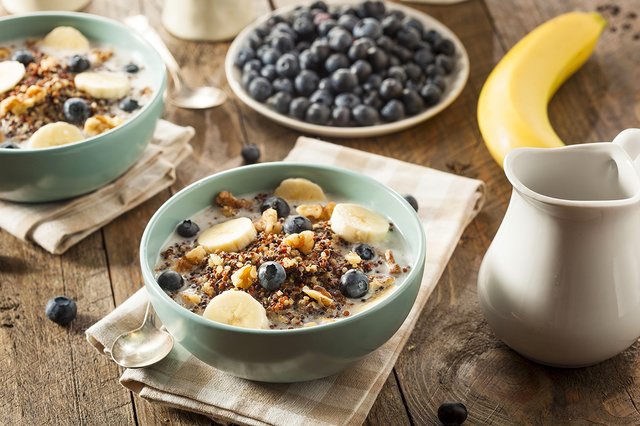
A nutritious diet is a key component of a healthy lifestyle. That’s an important thing to remember for people looking to turn over a healthier leaf and accomplish their long-term wellness goals.
Avoiding certain ingredients, like saturated fats and added sugars, and choosing foods known for their nutritional benefits is one way individuals can utilize diet to live healthier. Although such foods cannot entirely eliminate risk for certain diseases or make a person invincible, eating more of them certainly can benefit individuals’ overall health.
Kale: Kale long has had a place on healthy eating lists. Kale is a good source of vitamins A, C and K, and also contains alpha-linolenic acid, which is an omega-3 fatty acid. According to Britannica, studies show kale can help combat heart disease and cancer, and also boost eye health by reducing risk for cataracts and macular degeneration. Kale is not the only dark, leafy green vegetable that has earned superstar status. Swiss chard, spinach, collard greens, and turnip greens are equally beneficial.
Berries: There is strong antioxidant capacity associated with berries that helps reduce the risk of heart disease and other inflammatory conditions, says Healthline. That’s why blueberries, strawberries, blackberries, raspberries, and cranberries are so revered by nutritionists. They’re also great sources of fiber, vitamins and minerals.
Honey: This natural sweetener is a powerful ally to animals and insects. Honey is one of the most appreciated and valued natural products, according to the study “Honey and Health: A Review of Recent Clinical Research,” published in 2017. Since ancient times, honey has been used therapeutically due to its antioxidant, antimicrobial, anti-inflammatory, and antiproliferative effects.
Walnuts: Studies have found that those with higher nut consumption have improved cardiovascular risk factors and lower rates of cardiovascular disease. Nuts are an important part of the Mediterranean diet, which has been found to be heart healthy as well, according to Harvard Health. Walnuts are a particularly good choice for lowering LDL cholesterol, triglycerides and apoprotein B (a protein linked to cardiovascular disease).
Legumes: Legumes, also known as pulses, include beans, lentils, peas, peanuts, and alfalfa. Legumes are full of nutrients, like minerals, protein, fiber, and B vitamins. Healthline notes legumes also improve feelings of fullness, which may help people eat less at each meal.
Teff: Not too many people have heard of teff, which is a very small grain that is a dietary staple in parts of eastern Africa. Teff is high in the nutrients iron, magnesium, zinc, calcium, and vitamin C. Teff also contains ample protein and fiber. Teff also is gluten-free, so it can be ground and used in place of other flours in cooking, says Britannica.
Kefir: Fermented foods and beverages have garnered increased attention recently because of their effect on helping maintain gut health. Kefir is loaded with vitamins, minerals and nutrients, says the Cleveland Clinic. It is a fermented milk that boasts higher concentrations of probiotics than some other fermented foods, like yogurt. Kefir has approximately 12 active probiotic strains.
